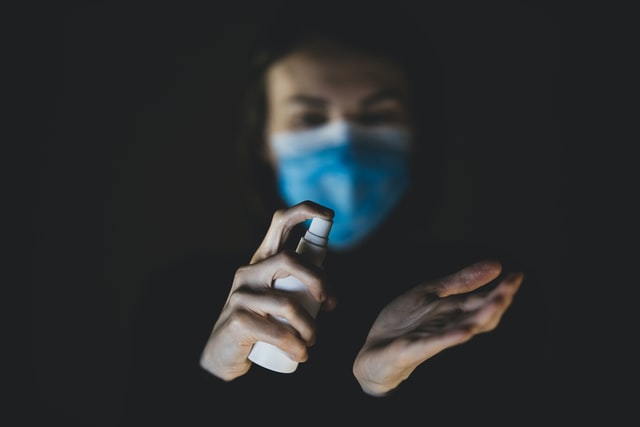What is a common cold and what are the symptoms?
The common cold is a viral infection of the upper respiratory system that affects the nose, throat, and nasal area.
Although the common cold is very common for most people, one person per year is estimated to develop pneumonia after being infected by a cold virus.
In some cases, a cold can lead to more serious complications such as ear infections or sinus infections.
It is also possible to develop a secondary bacterial infection from a virus if the immune system is compromised so you should see your doctor if you have had a cold for several weeks and are not getting better.
Common cold symptoms
There are multiple symptoms associated with a cold. The most common symptoms of a cold are sneezing, scratchy throat, runny nose, stuffy nose, and congestion. In some cases, it can also lead to mild fever, body aches, or fatigue.
A cold virus infects your body and causes you to become ill. The average adolescent gets between two and four colds every year. That’s unsurprising, given that colds are the most prevalent infectious disease in the United States and account for the majority of school absences.
It’s quite common for young children to catch between eight and ten colds per year.
Early symptoms
A sore throat, headache, chilliness, fatigue, and body aches are the early indicators of a cold and this is when symptoms start. These symptoms may persist one or two days before deteriorating.
Peak symptoms
The runny nose or congestion, cough, sneezing, and low-grade fever might linger from a few days to a week at its peak.
Late symptoms
Fatigue, coughing, congestion, or a runny nose are late-stage symptoms of the cold that commonly occur between days eight and ten.
What’s the difference between a cold and the flu?
A cold can be differentiated from the flu because cold doesn’t include fever as a symptom in most cases. In addition, it is typically much shorter than a bout of influenza virus.
The common cold is caused by over 200 different viruses, whereas the flu is caused by only one kind of virus called influenza A or B.
What’s the difference between a cold and COVID-19 (the novel coronavirus)?
You’ve probably heard that the common cold is a coronavirus. Coronaviruses are a type of virus that can infect the upper respiratory tract. While rhinoviruses are responsible for the majority of common colds, a few are caused by different coronaviruses. The majority of people recover quickly from common colds.
Coronaviruses can also enter the lungs and cause pneumonia and other potentially fatal complications. COVID-19 is a disease caused by a new (novel) type of coronavirus discovered in late 2019. Early symptoms that distinguish COVID-19 from the common cold include:
- Fever.
- Shaking and chills.
- Breathing difficulty.
- Taste or odor loss (anosmia).
- Diarrhea.
How to prevent getting a cold
In order to avoid getting a cold, you should try not to touch your eyes, mouth, or nose as this will increase your chances of spreading germs around your body which can make you more susceptible to catching a cold virus.
You should also wash hands frequently with soap and water since viruses live for up to two hours on hard surfaces like door handles and keyboards which means by touching these objects after they have been touched by someone else who has a cold then you could be at risk of developing a cold.
When you can’t wash your hands with soap and water, use hand sanitizers.
Boost your immune system, making your body better equipped to handle viruses. Adequate sleep, a nutritious diet, and regular exercise are the best methods to attain overall good health.
To avoid the spread of the cold, stay home when you’re unwell.
How long do colds last?
According to the Center for Disease Control and Prevention (CDC), most colds usually last between 7-10 days. However, when you may feel better it is possible for the virus to stay in your body and then later reoccur when your immune system is not able to fight off the infection.
Generally speaking, the most effective method of treating a cold is to manage the symptoms. Antibiotics should be reserved for strep throat or a sinus infection.
When are you permitted to return to work or school?
You can be infectious for up to two weeks and can transfer a cold up to a day or two before symptoms appear. However, you are most infectious when you have the most severe symptoms — typically the first three days after becoming ill.
How do you treat a cold?
There are some home cold remedies that you can try to relieve cold symptoms before heading to the doctor. For instance:
- Drink plenty of fluids like water and juices will help flush out your system and keep your throat moist.
- Stay hydrated help keep your mucus thin and runny. If you do get a sore throat then adding some lemon juice into warm (not hot) water can help relieve some of the pain.
- Ginger tea for nausea or fatigue that is caused by a cold.
- Garlic for its anti-bacterial properties that may help ward off a cold.
- If you have a sore throat then gargling salt water with lemon juice will help reduce pain and prevent infection.
- A humidifier when you’re in bed will help keep your nasal passages moist which will make it easier to breathe.
- Over-the-counter nasal sprays are available for symptom relief of nasal congestion and stuffiness.
- Pain relievers such as ibuprofen and acetaminophen (Tylenol) can aid with cold symptoms such as achiness and can also help with fever reduction.
- If over the counter cold medicines have been used then be sure to read and follow all directions as these can have some dangerous side effects if not used correctly.
When you should call the doctor
You should contact a doctor as soon as possible if:
- You have a fever over 38°Celsius (100 degrees Fahrenheit).
- You are experiencing difficulty breathing or swallowing.
- Ear pain.
- Your symptoms worsen significantly after 72 hours.
Cold viruses can rarely cause subsequent upper respiratory infections such as sinus or middle ear infections. A cold that is followed by sinus pain, swollen glands, or a cough that produces mucus may indicate a secondary illness that requires medical attention.
Colds can make existing health conditions worse, too. If you have asthma, for example, a cold could trigger an attack or worsen your symptoms.
If you have any other chronic illness that affects the heart, lungs, kidneys, or have diabetes then consult with your doctor to see if he/she recommends seeing a specialist.
What are common misconceptions about colds?
It is common for some people to believe that you can get a cold from food or beverages. You cannot catch a cold from eating or drinking with someone who has the virus, but if they sneeze on your drink then you could be at risk of developing a cold.
Colds are not caused by eating certain foods or the weather.
Colds are not caused by allergies.
You can catch a cold any time of year, even in the winter when the weather is cold and dry.
Colds are typically brought on by viruses that are spread from person to person. The typical duration of a typical cold is 7-10 days with symptoms resolving themselves, but it’s important to note that when treated with over-the-counter cold medications that you should only use these for 5-7 days.
If you catch a cold then it can take up to two weeks for your body to be able to fight off the virus which is why many health care professionals recommend not using over the counter cold medications unless necessary since they can cause side effects such as drowsiness, nausea, and headache.
Can antibiotics cure a cold?
Antibiotics are drugs that tackle bacterial infections. Antibiotics do not help with colds because viruses cause them.
Which over-the-counter medications are best to take if you do catch a cold?
In regards to medical treatment, if you do get a cold, there are many over-the-counter medications that you can take. Treating your symptoms should be the first step in your treatment plan.
For example, decongestants can help relieve stuffiness in your nose and sinus pressure (pseudoephedrine or phenylephrine).
Antihistamines (Diphenhydramine) can help relieve a runny nose caused by an allergic reaction or another condition.
Decongestants and antihistamines may also cause drowsiness, so make sure to only take these medications when you need them.
If you are experiencing body aches with your cold, you can take acetaminophen or ibuprofen for the pain. However, do not give aspirin to anyone under 18 due to its link to Reye’s Syndrome.
If you have a fever over 100 degrees Fahrenheit (38 Celsius) that is causing you discomfort, then it is safe to use ibuprofen or acetaminophen in combination with a non-aspirin medication.
Cough suppressants such as dextromethorphan and codeine can reduce coughing.
All medications should be taken as prescribed by the packaging.
Conclusion
Colds, while inconvenient, are usually harmless. Medications can help you control the symptoms. Accelerate your recuperation by getting adequate rest and hydration and avoiding contact with others.
Remember to keep your hands clean and avoid touching your eyes, mouth, and nose. If you are sick, do not go to work or school until symptoms have resolved themselves.
If symptoms persist for more than two weeks or worsen then consult with a medical professional.
If you enjoyed this article, then please feel free to check out some of our other articles in the Popular Health Articles Archive.




